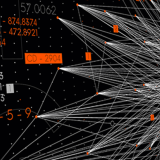EU context
Politische Entscheidungsträger müssen Informationen sammeln, die ihnen helfen, Fragen zu einer wirksamen Regulierung zu beantworten, oder wie sich der Sozialschutz im breitesten Sinne gewährleisten und ein Ausgleich zwischen den Anforderungen von Unternehmen, Organisationen und Einzelpersonen bei der Realisierung des großen Potenzials der Digitalisierung schaffen lässt.
Die Europäische Kommission hat ihre Strategie des digitalen Binnenmarktes für Europa 2015 angenommen und sie zu einer ihrer politischen Prioritäten erklärt. Die Strategie kann digitale Chancen für Bürger und Unternehmen schaffen, und sie soll die weltweit führende Stellung der EU in der digitalen Wirtschaft stärken. Sie will den Zugang zu Informationen verbessern, Arbeitsplätze für Menschen mit den richtigen digitalen Kompetenzen schaffen und die öffentlichen Dienste grundlegend verändern. Da die kollaborative Wirtschaft EU-weit expandiert, möchte die Kommission die Entwicklung neuer und innovativer Dienstleistungen fördern, wobei angemessene Schutzmaßnahmen gewährleistet werden sollen. Die Mitteilung der Kommission über die Europäische Agenda für die kollaborative Wirtschaft von 2016 klärt die Regeln und politischen Empfehlungen in diesem Bereich für Bürger, Unternehmen und Mitgliedstaaten.
Tätigkeiten von Eurofound
Eurofound untersucht, welche allgemeinen Auswirkungen der immer häufigere und umfassendere Einsatz digitaler Technologien auf dem Arbeitsmarkt für die Bereiche Arbeitsbedingungen, arbeitsrechtliche Vorschriften und darüber hinaus hat.
Die Auswirkungen zukunftsweisender Technologien auf die Beschäftigung im Bereich Dienstleistungen werden ebenfalls erkundet. Außerdem prüft Eurofound die Auswirkungen der Plattformwirtschaft und insbesondere des Crowdsourcing auf den Arbeitsmarkt. Ferner werden die Forschungsarbeiten zu den Arbeits- und Beschäftigungsbedingungen von IKT-gestützten mobilen Arbeitnehmern fortgeführt.
Die Art der Arbeit und Beschäftigung im digitalen Zeitalter wird unter besonderer Berücksichtigung folgender Punkte untersucht:
Wichtige Beiträge
In einem gemeinsamen Bericht mit der Internationalen Arbeitsorganisation (ILO) über das Arbeiten jederzeit und überall wurden die Auswirkungen der Telearbeit und der IKT-gestützten mobilen Arbeit auf ausgewählte Elemente der Arbeitsbedingungen untersucht.
Eurofounds Seminarreihe (Foundation Seminar Series, FSS) bietet Regierungen, Gewerkschaften und Arbeitgebern Gelegenheit, über die Entwicklung der sozialen, beschäftigungs- und arbeitsbezogenen EU-Strategien zu diskutieren. Im Mittelpunkt der FSS standen 2016 die Auswirkungen der Digitalisierung auf die Arbeit und die Entwicklung nationaler Agenden für eine bessere Umsetzung digitaler Veränderungen.

































